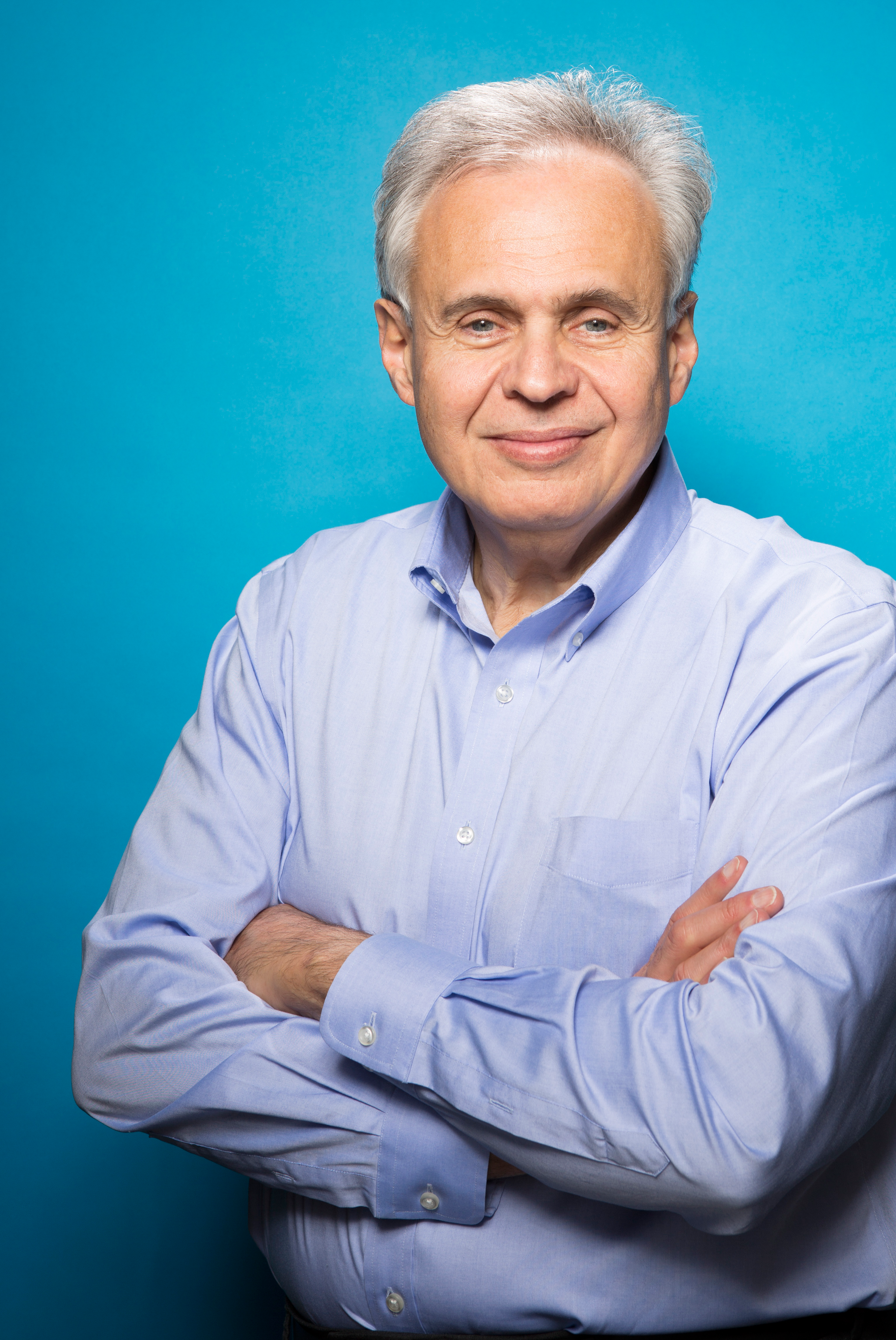
Written By: Sara Daniels
Photos By: John Packman
When your arm is bruised and swollen, you go to your doctor, who x-rays your arm, finds the broken bone and sets the bone so that it heals properly — perhaps even stronger than it was before. In time, the bruising fades, the swelling goes down. You know your arm is healing for the same reason you guessed it was likely broken: You can see it.
We tend to rely on visual cues to let us know when something is wrong in our bodies. But what if the pain you feel doesn’t show any physical symptoms? How do you know the difference between a minor injury and major illness? How does your doctor determine what is causing your pain and what kind of treatment would make you feel better?
This dilemma is central to mental health care. Symptoms of mental illness are often invisible or indirect, and their expression varies significantly from person to person based on a whole range of factors related to their personalities, culture, upbringing and socioeconomic conditions. People struggle to recognize and name the cause of their own distress, and may feel shame and stigma about mental illness. Health care workers are often just as unprepared to identify symptoms of mental illness. All of these factors contribute to our tendency to think of “health” as physical, and mental health as distinctly separate.
But physical and mental health are inextricably connected, and physical and mental illness often occur alongside each other.
“There is no health without mental health,” says Dr. Molyn Leszcz, Psychiatrist-in-Chief at Sinai Health System. “Our mental health contributes to our physical health in so many ways. For example, if you have depression and diabetes, you need more help, and different kinds of help, than if you just have one condition or the other. We need to treat all of a patient’s conditions or symptoms effectively to assure good health.”
Approximately 30 per cent of Canadians have simultaneous medical and psychiatric illnesses. Fifty per cent of people who suffer a stroke will also suffer from depression; ten to 15 per cent of pregnant women will develop post-partum depression. And while mental health issues can develop in response to physical illness, the reverse is also true: Mental illness can make people more likely to develop serious medical illnesses.
“Psychological pain and stress feed today’s epidemic of chronic disease,” says Dr. Leszcz. “People tend to look for comfort in ways that can be destructive to their health, such as smoking, drinking alcohol or overeating.”

Above: Dr. Molyn Leszcz, Psychiatrist-in-Chief
Mental illness can also make it harder for patients to take the steps necessary to manage their physical health, such as taking medications regularly, eating a healthy diet or getting recommended amounts of exercise. And psychological factors can cause some people to experience an illness as more severe or disabling, making it harder for these individuals to cope with and recover from their illness.
Led by Dr. Leszcz, Sinai Health System’s Department of Psychiatry is guided by this awareness of the many ways that physical and mental health intersect. Dr. Leszcz and his team of psychiatrists, mental health clinicians and residents work closely with clinical colleagues to provide efficient, accessible and tailored mental health services across the continuum of mental illness. The psychiatry team treats individuals with severe and persistent mental illness in community, outpatient and inpatient psychiatry settings, and provides education and training in mental health care and psychotherapy. In addition, the team has a particular emphasis on supporting individuals and their family members who develop mental health symptoms in conjunction with or as a consequence of injury, physical illness or treatment.
Adapting to a new reality
Whether patients have experienced a sudden medical illness — a cancer diagnosis, a heart attack — or are living with a chronic disease or injury, a health crisis is a life-changing experience. Often, illness creates a fault line between who we were before we were ill or injured, and who we will become as we adjust to a new version of “normal”.
Patients grapple with many challenging questions as they try to negotiate this change: How do I cope with my diagnosis? How do I adapt my day-to-day life to my illness? How can I ensure that I have a positive outcome? What will my life be like after treatment?
"Our mental health contributes to our physical health in so many ways. For example, if you have depression and diabetes, you need more help, and different kinds of help, than if you just have one condition or the other."
- Dr. Molyn Leszcz, Psychiatrist-in-Chief
With these questions in mind, the Department of Psychiatry’s Consultation-Liaison (CL) Service supports patients as they work through the challenges of managing their illness.
“You can’t truly understand what a person’s illness means to them and to what degree they are able to participate in their own care without understanding their inner emotional environment and psychological vulnerabilities and strengths,” says Dr. Jon Hunter, head of the CL Service at Mount Sinai Hospital and of Psychosocial Services in Mount Sinai’s Marvelle Koffler Breast Centre, where he is an integral part of the interdisciplinary care team.
Like Dr. Hunter, most of the CL psychiatry team is specialized and embedded in care units specific to his or her expertise — cancer, diabetes, digestive diseases, family medicine, geriatrics, women’s and infants’ health. Their proximity to their clinical colleagues allows the CL team to participate in patients’ care from the earliest opportunity, relieving some of the emotional burden patients experience as they manage their illness and adapt to their new reality.
“We try to support people as different issues flare up during the course of illness,” explains Dr. Hunter. “Diagnosis is often a point of crisis, but even the end of treatment can cause anxiety, as people try to figure out how to return to their lives after experiencing a big unexpected life event.”
"Bridgepoint is a point of transition in people’s lives. An acute event — a stroke, for example — passes in the blink of an eye and then people are here recovering for two weeks, a month, even three months. You can actually do a lot of work in that time to help patients and families adapt to a new reality."
- Dr. Mark Lachmann, Medical Director, Complexity Services, Bridgepoint
Dr. Lesley Wiesenfeld, a geriatric psychiatrist who works as part of an interprofessional team within the award-winning Safe Patients/Safe Staff™ program to help frontline staff care for at-risk patients, provides psychiatric support for elderly patients, many of whom suffer from varying degrees of dementia, depression or demoralization.
“For older people who have had significant or recurring health problems, aging can feel like they’re collecting one loss after another,” says Dr. Wiesenfeld, Deputy Psychiatrist-in-Chief and head of the Geriatric Psychiatry Consultation-Liaison Service at Mount Sinai. “Will they get better? Will they be able to live in their own home? It’s a lot of losses to reflect on.”
These concerns are also particularly profound at Bridgepoint Active Healthcare, where patients remain in hospital for extended periods of time as they rehabilitate after a recent disability or during an ongoing illness. When they finish treatment, many patients return to their homes and families quite changed.
“Bridgepoint is a point of transition in people’s lives,” explains Dr. Mark Lachmann, a geriatric psychiatrist and Medical Director of Complexity Services at Bridgepoint. “An acute event — a stroke, for example — passes in the blink of an eye and then people are here recovering for two weeks, a month, even three months. You can actually do a lot of work in that time to help patients and families adapt to a new reality in terms of people’s functioning after a stroke or other medical event.”
Similarly, the Perinatal Mental Health Program, led by Dr. Ariel Dalfen, supports patients around another critical transition: motherhood. “For a woman coping with mental health problems, just taking care of herself is often a huge challenge,” says Dr. Dalfen. “To also have to care for a child adds a whole other set of demands on someone who may already be struggling.”
Dr. Dalfen’s team is situated within the obstetrical offices of the Women’s and Infants’ Health Program and attends to the unique mental health needs of women before and during pregnancy, and for up to one year post-partum. The program — the largest of its kind in Canada — sees approximately 10 to 15 per cent of the women who deliver at Mount Sinai, and also helps underserved women throughout Ontario using telemedicine, which allows Dr. Dalfen’s team to connect with patients in their own homes.
“Once they see us, our patients often do very well,” says Dr. Dalfen, “and it’s rewarding to see the impact we can have at this critical time of life.”
Caring for caregivers
As part of their holistic approach to mental health care, Dr. Leszcz and his team attend not only to patients’ needs but also to their families’. Caring for loved ones who have chronic or prolonged illnesses, such as dementia, can take a significant mental and emotional toll on family members who are often juggling many other responsibilities as well. Family caregivers are at higher risk for stress-related illnesses, experience burnout and loss of productivity in their jobs and demonstrate a rate of depression that is much higher than in the general population.
With the generosity of the Reitman family, The Cyril & Dorothy, Joel & Jill Reitman Centre for Alzheimer’s Support and Training at Sinai Health System was established in 2008 to support family caregivers. Led by Dr. Joel Sadavoy, the Reitman Centre has pioneered the Coaching, Advocacy, Respite, Education, Relationship, Simulation (CARERS) program, an intensive 10-week, small-group training program that helps reduce the burden of caregiving for spouses, adult children and other family members of people with dementia. Guided by Reitman Centre staff, family caregivers learn coping strategies to manage their emotions, develop practical caregiving skills and practice addressing challenging situations by role-playing with a trained actor who simulates a person with dementia. An arts-based group offered at the same time as the CARERS group provides social interaction and stimulation for people with dementia while their caregivers are occupied.
Dr. Sadavoy, Director of the Reitman Centre, Head of Geriatric Psychiatry and Sam and Judy Pencer and Family Chair in Applied General Psychiatry, and his colleague Dr. Virginia Wesson are eager to share the tools and training they have developed with caregivers throughout Ontario. They have trained staff at Bridgepoint, and new CARERS groups are now available to caregivers on that campus. In addition, the Reitman Centre team, led by Dr. Sadavoy, is heading the new ENRICHES Collective, a collaboration between the Reitman Centre and four community partner organizations to support isolated senior caregivers who would not typically be reached by the Reitman Centre’s programs.
The next step, Dr. Wesson says, is to adapt the CARERS program to meet the needs of a broader range of caregivers, particularly at Bridgepoint, where many family members are caring for people with other chronic care needs stemming from stroke recovery or traumatic brain injury, or for those in palliative care.
“We recognize how valuable family caregivers are; the system wouldn’t work without them,” says Dr. Wesson. “We want to make them feel stronger, more skilled, more resilient, so that they can continue to do the work they do that’s difficult but so essential.”
“Seeing” signs of improvement
Though mental illness can often be invisible, it is possible to “see” patients return to good mental health when they receive timely and effective care. The initial source of emotional or psychological strain — illness, injury, caregiving — may not change, but an individual’s reaction to this strain can undergo a dramatic transformation. Our sense of suffering lessens. Our ability to manage the logistical demands of our illness and treatment improves. We find support from friends, family members or mental health professionals that makes us feel heard and understood. And over time, we find ways to make meaning out of our illness and to grow through our experience. We find hope.
“And hope,” says Dr. Leszcz, “is an incredibly powerful, transformative force.”




